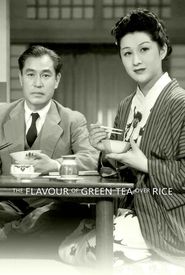Awashima Chikage, a renowned Japanese actress, was born as Nakagawa Keiko on February 24, 1924, in Tokyo, Japan, to store owner parents. Her early life was marked by a strong passion for the performing arts, which led her to join the Takarazuka Revue of Kansai at the tender age of fifteen. Under the guidance of the esteemed director Shiro Toyoda, Awashima honed her craft, eventually adopting the stage name "Awashima Chikage" from a Japanese poem.
Her screen career began in 1950, with her debut role in the comedy film "Ekimae" ('station front'),a series that would go on to feature her in numerous installments. Awashima's collaboration with director Shiro Toyoda resulted in over a dozen films, cementing her reputation as a talented actress. Her early success was solidified with her critically acclaimed performance in "Tenya Wanya" (1950),directed by Minoru Shibuya, which earned her the Best Actress award.
As her career progressed, Awashima became synonymous with the works of Ozu Yasujiro, starring in three of his iconic films. Her association with the Shochiku studio led to her involvement in the masterpiece "The Human Condition I: No Greater Love." Throughout the 1950s and 1960s, Awashima remained a prominent figure in Japanese cinema, working consistently with Toho Studio and occasionally on stage.
In recognition of her outstanding contributions to the world of entertainment, Awashima was awarded the prestigious Medal with Purple Ribbon in 1988 and the Order of the Precious Crown, 4th Class, Wisteria in 1995. The Medal with Purple Ribbon honors academic or artistic achievement, while the Order of the Precious Crown is typically bestowed upon females in Japan who have made significant contributions to their respective fields.
Awashima's commitment to the welfare of actors and actresses led her to serve as an honorary Vice President of Japan's actors' guild until 2007. Tragically, her life was cut short on February 16, 2012, at the age of 87, due to complications from pancreatic cancer. Her funeral was attended by numerous actors and actresses, who paid their respects to a woman who had left an indelible mark on the world of Japanese cinema.
Despite her passing, Awashima's legacy continues to inspire and influence new generations of actors and actresses. Her remarkable career, marked by numerous accolades and a commitment to her craft, serves as a testament to her enduring impact on the world of Japanese entertainment.




















